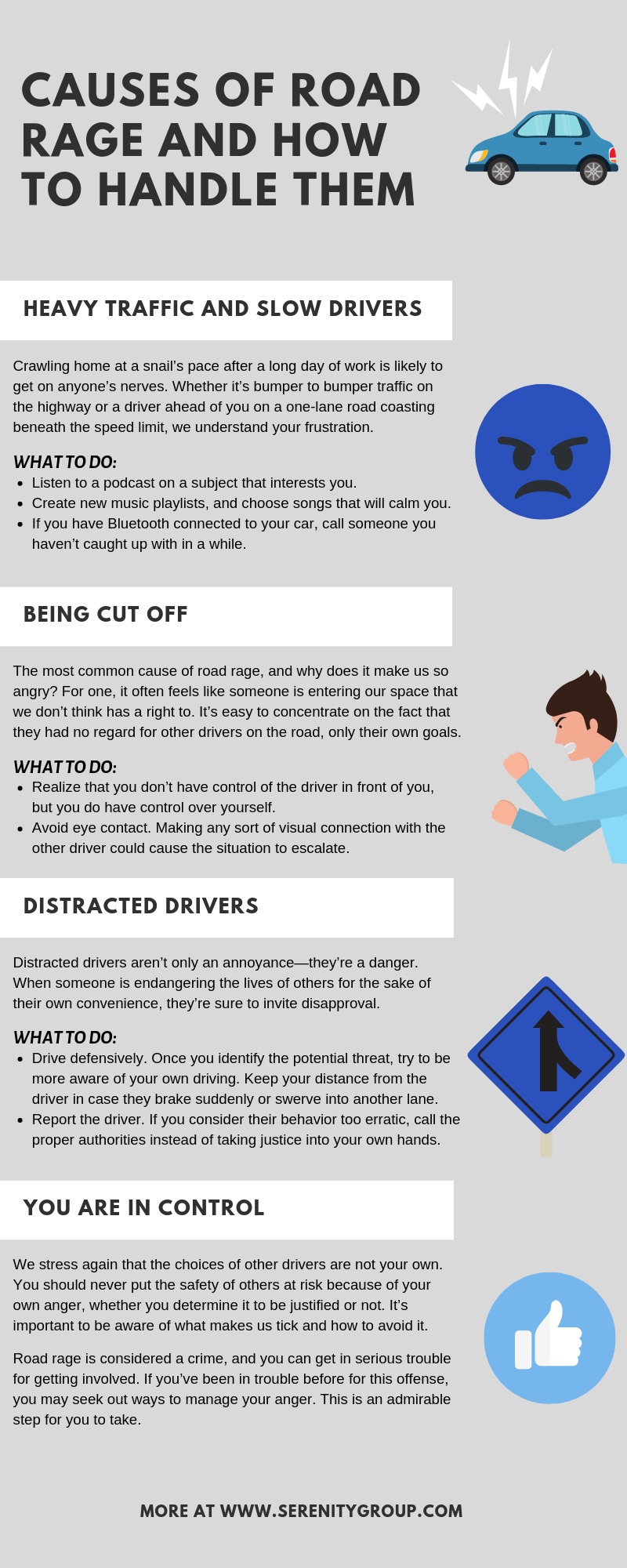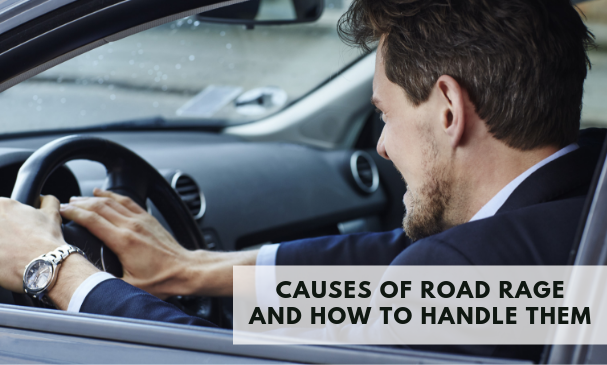Causes of Road Rage and How to Handle Them
What is Road Rage?
The first thing you should know is that there’s a difference between aggressive driving and road rage. It’s important to know the differences between the two and identify which category you fall under, if any. According to New York State’s official site, “Aggressive driving is the operation of a motor vehicle in an unsafe and hostile manner without regard for others.” While aggressive driving is not road rage, it can branch into it.
Road rage is a violent act instigated by an occurrence caused by traffic. It’s important to note that road rage is not caused by the traffic itself, but by the individual displaying it. If you’re someone that displays any sort of violence due to incidents on the road, it’s important to realize that what you’re doing is the result of your own actions and no one else’s. Even mild-mannered people can display road rage, so it’s not just those with hot-heads who are susceptible to dangerous actions.
If you’ve identified yourself as someone that struggles with road rage, it’s best to pinpoint the causes and plan your solutions accordingly. The most common trigger for road rage is someone getting cut off, which accounts for 44% of incidents. Other common triggers include:
- Distracted driving
- Heavy traffic
- High Beams
- Slow driving
- Tailgating
- Inappropriate gestures
Once you’ve identified the cause of your road rage, you can work on ways to navigate your roadside temper. We’ve collected some tips on how deal with this, and we hope that you can successfully integrate them into your daily driving habits. If you find that you still struggle with rage when on the road, consider contacting a mental health professional to learn about their additional recommendations.
Heavy Traffic and Slow Drivers
Crawling home at a snail’s pace after a long day of work is likely to get on anyone’s nerves. Whether it’s bumper to bumper traffic on the highway or a driver ahead of you on a one-lane road coasting beneath the speed limit, we understand your frustration. With an entire day’s events already sitting on your chest, one more thing going wrong could be the straw that breaks the camel’s back. It’s important that you know how to handle these frustrations in a safe manner. If you feel negative energy piling up, take a deep breath and ground yourself. If you’re worried about slow traffic taking up time that could be spent on more important things, try to find ways to make your drive more productive, and redirect your thoughts.
What to Do:
- Listen to a podcast on a subject that interests you.
- Choose a book series that takes a long time to listen to, and keep the audiobooks in your car.
- Create new music playlists, and choose songs that will calm you.
- If you have Bluetooth connected to your car, call someone you haven’t caught up with in a while. If you do this, make sure that it’s by voice command only, and that you’re not picking up your phone while moving.
Being Cut Off
The most common cause of road rage, and why does it make us so angry? For one, it often feels like someone is entering our space that we don’t think has a right to. It’s easy to concentrate on the fact that they had no regard for other drivers on the road, only their own goals. Another reason that this may be so anger-inducing for us is the dissociation we have with other drivers. Since we don’t know them, we don’t know of their motives or their concerns for their safety. This blatant disregard of others will annoy everyone, but ultimately, it’s a small brushstroke in the bigger picture.
What to Do:
- Realize that you don’t have control of the driver in front of you, but you do have control over yourself. You need to accept that they did something arguably wrong, but you won’t retaliate with further instigation.
- Avoid eye contact. Making any sort of visual connection with the other driver could cause the situation to escalate. If they’re already agitated, and now you are as well, you’re both more likely to make inappropriate gestures that could be translated as a challenge. It’s better to avoid the situation by keeping your eyes trained on the road.
- The danger has passed, and nothing with lasting effects has occurred. Recognize and accept this fact and move on.
Distracted Drivers
Distracted drivers aren’t only an annoyance—they’re a danger. When someone is endangering the lives of others for the sake of their own convenience, they’re sure to invite disapproval. Drivers are 23 times more likely to get in an accident when using their phone behind the wheel. With all the reports of accidents caused by technology, it is tempting to battle their dangerous habits by displaying your own.
What to Do:
- Drive defensively. Once you identify the potential threat, try to be more aware of your own driving. Keep your distance from the driver in case they brake suddenly or swerve into another lane. You may wish to pass the driver, but be careful if you choose to do this.
- Report the driver. If you consider their behavior too erratic, call the proper authorities instead of taking justice into your own hands. If the driver is navigating in a way that’s unsafe to other drivers, especially if they seem to be under the influence, there should be some sort of intervention, but only from the proper authorities. Again, don’t pick up your phone while driving. Use it wirelessly or pull over.
You Are in Control
We stress again that the choices of other drivers are not your own. You should never put the safety of others at risk because of your own anger, whether you determine it to be justified or not. It’s important to be aware of what makes us tick and how to avoid it.
Road rage is considered a crime, and you can get in serious trouble for getting involved. If you’ve been in trouble before for this offense, you may seek out ways to manage your anger. This is an admirable step for you to take. There is also a chance that your road rage has caused a need to obtain an SR22. If you need one, we can help.
Browse our site to learn more about the types of sr22 auto insurance we offer and the states we service.



Recent Comments